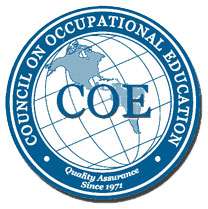A medical biller plays a key role in keeping healthcare providers and patients financially sound. Studies show that 80% of medical bills have mistakes, with a lot of them coming from small typos or hospital coding errors. Even though these mistakes seem small, they can lead to big problems.
When medical bills are not accurate, many of them end up not being paid at all. In fact, about one-third of medical bills go unpaid because of these errors, with each mistake potentially costing more than $100.
With so much at stake, the accuracy and efficiency of a medical biller are crucial. In a field where one slip can mean a significant loss, those entering a medical billing career are stepping into a position where their attention to detail can make a real difference.
As you read on, you will discover how to sidestep common blunders and become a medical biller who contributes to the smooth operation of healthcare services.
1. Overlooking the Details
The devil, as they say, is in the details, especially when it comes to medical billing. Minor mistakes, like entering a wrong date or patient ID, can cause a claim to be denied. This delays payments and adds to the administrative burden of resubmitting claims.
To prevent such errors, medical billers must cultivate a meticulous approach to their work.
- Double-checking entries
- Staying organized
- Using checklists
These methods can ensure that claims are accurate the first time around. Regular audits of your work or having a second pair of eyes review claims can catch errors that you might have missed. In this detail-oriented field, vigilance is your greatest ally.
2. Inadequate Knowledge of Billing Codes
Medical billing is a complex language of its own, spoken through codes. Using the wrong code won’t make sense to the insurance companies that decipher these codes. Outdated or incorrect codes can lead to rejected claims, lost revenue, and a whole lot of frustration.
To stay fluent, a medical biller must be committed to continuous learning. This means keeping up with the latest coding updates and staying connected with coding communities.
Remember, in the world of medical billing, education never truly ends. The codes are constantly evolving, and so should your knowledge of them.
3. Neglecting Payer Policies
Each insurance payer operates by its own set of complex rules. Overlooking these individual payer policies can lead to a costly fall. Policies can change annually or even more frequently, affecting how claims must be submitted and processed.
Medical billers must have a systematic approach to keeping up-to-date with each payer’s guidelines. Understanding these policies helps ensure that claims are compliant, which in turn maximizes the chance of timely and full payments.
As a medical biller, your role involves being as fluent in payer policies as you are in coding languages.
4. Failing to Verify Insurance Coverage
Assuming that a patient’s insurance coverage is valid without proper verification is a gamble that no medical biller should take. The risky assumption can result in unpaid claims and financial losses for the healthcare provider.
Before any medical service is rendered, it is critical to confirm the patient’s coverage. You can confirm this by checking the patient’s:
- Insurance eligibility
- Coverage limits
- Benefits on every visit
Utilizing electronic verification tools or directly contacting insurance companies are effective ways to ensure coverage is current and to understand what services are covered. By taking the time to verify upfront, medical billers can avoid the pitfall of rejected claims due to coverage issues.
5. Poor Patient Data Management
Inaccurate patient data is a significant hurdle in the medical billing process. When demographic details or health information is incorrect, it can result in claim rejections or delays.
Medical billers must therefore place a high priority on the integrity of patient data. Strategies to improve data management include implementing a double-check system where patients confirm their details at each visit and training staff on the importance of data accuracy.
Keeping patient data up-to-date and error-free is essential for clean billing and optimal revenue cycle management.
6. Inefficient Billing Processes
Efficiency is the heartbeat of a successful medical billing operation. Inefficient processes can increase the likelihood of errors. It is crucial for medical billers to continuously evaluate and refine their billing practices.
Streamlining the process by adopting medical billing software can also reduce manual entry and help track claims throughout their lifecycle. By focusing on efficiency, medical billers can help healthcare providers save time and resources, leading to a healthier bottom line.
7. Not Following Up on Claims
It is not enough to submit a claim and then wait for a response. The journey from submission to payment requires vigilant tracking. Failing to follow up on claims can mean missed opportunities to address issues that could prevent payment.
Medical billers should establish a system for monitoring the status of each claim. Regularly scheduled follow-ups, whether weekly or bi-weekly, can keep claims on track.
Proactive follow-up is a critical component of effective medical billing and can make sure that claims don’t fall through the cracks.
8. Ignoring Denials and Rejections
Denials and rejections can be a rich source of learning, but only if they are properly addressed. Each denial should be analyzed to understand the underlying issue.
- Was it a coding error?
- A policy misunderstanding?
- An eligibility issue?
Once you identify the root cause, corrective action can prevent future occurrences. Setting up a system for managing denials might include a dedicated denial management team or a specialized software module.
The key is to correct and resubmit denied claims swiftly and use these instances as learning opportunities to improve billing practices overall.
Avoid These Mistakes as a Medical Biller
Stepping into the role of a medical biller is stepping into a world of precision and responsibility. With the right approach, You can navigate a fulfilling career in healthcare.
At Healthcare Career College, we turn dedicated learners into professional medical billers who meet the industry’s demands. Our comprehensive programs, proven by the thousands of healthcare professionals we helped, provide a solid foundation for your success.
Ready to take the next step? Join us at Healthcare Career College, where your ambition meets our expertise. Reach out today and start a career that makes a difference in this world.



